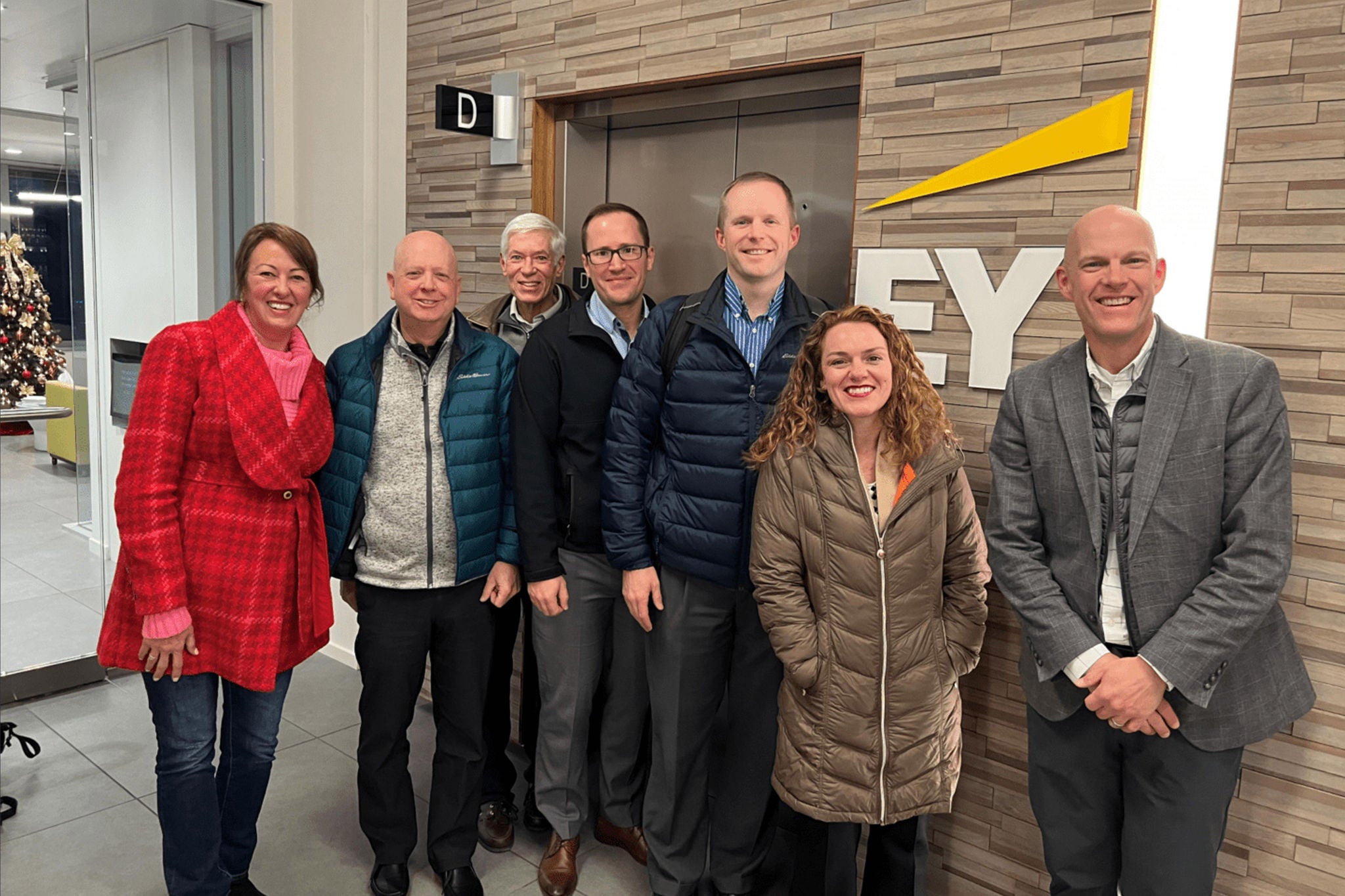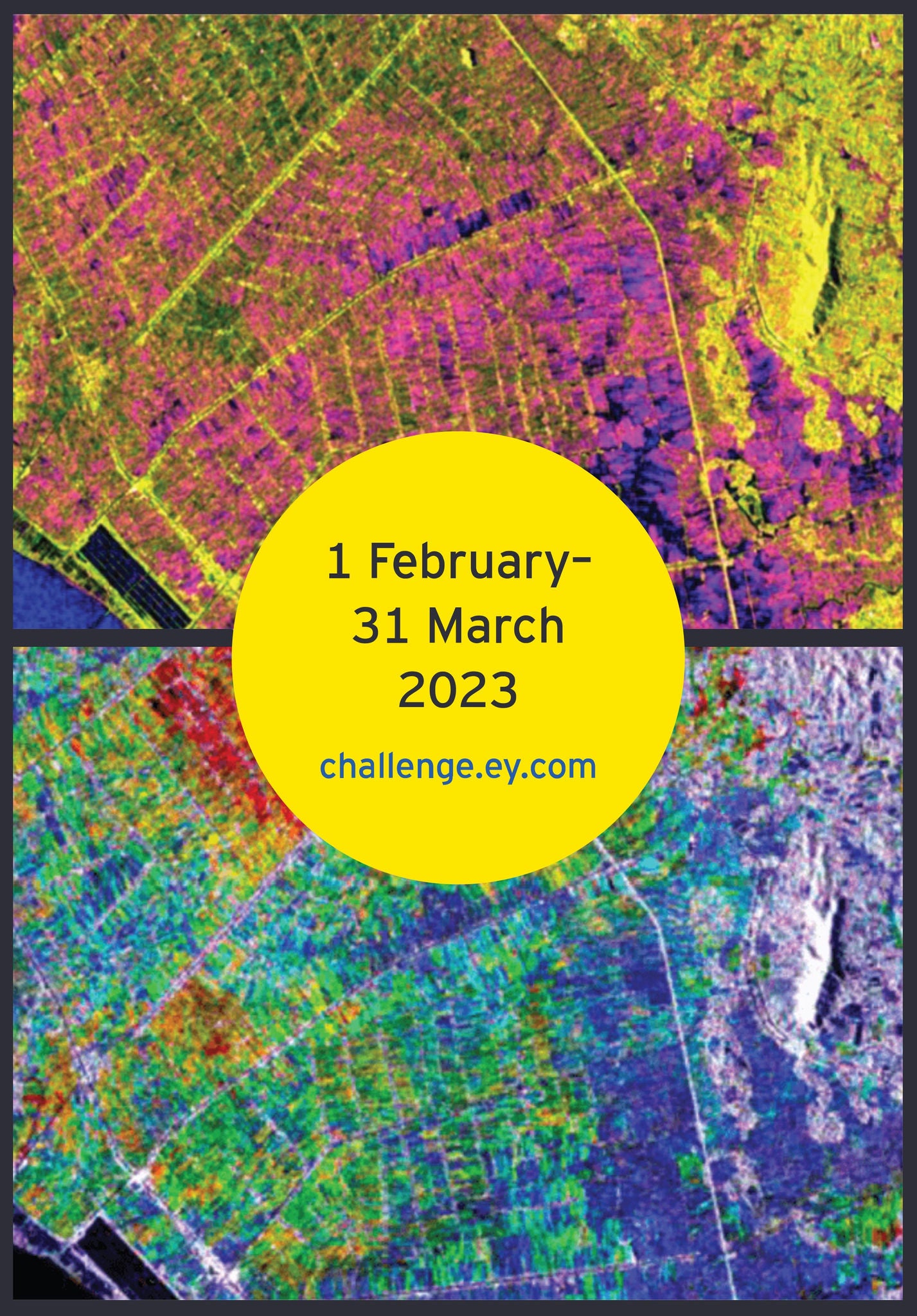EY refers to the global organization, and may refer to one or more, of the member firms of Ernst & Young Global Limited, each of which is a separate legal entity. Ernst & Young Global Limited, a UK company limited by guarantee, does not provide services to clients.


Hello EYARC friends,
This newsletter begins with a tribute to a beloved faculty member of our EYARC team, Jessen Hobson (pictured far right), Professor of Accountancy at the University of Illinois Urbana-Champaign. Jessen recently passed unexpectedly and our entire team is sad. We just spent time together in December planning the future of EYARC offerings for the academic community. Then, and always, Jessen brought talent, professionalism and warmth into his interactions and work. His face lit up with enthusiasm and excitement when discussing ways to innovate and positively impact accounting education, and by doing so, he lived the mission of our EYARC fully!
We have been so blessed to have had Jessen as a part of our team! In his honor, I’d like to ask you to do two things:
- Try out the new Analytics mindset case, ETL in R, that he authored and is featured in this newsletter. This case was to be the beginning of a machine learning series. I hope you enjoy it!
- One fun fact about Jessen is that he always seemed to have a great pair of dress socks on. Each time I saw him, I enjoyed checking them out. So, in his honor, go to your sock drawer and find something fun to wear or decide if it is time to go shop for a new, cool pair of socks.
In this issue of the EYARC Access newsletter, you’ll find:
- Information about the EY Open Science Data Challenge that your students can participate in beginning February 1.
- Highlights about three new EYARC Analytics mindset case studies.
- Insights about how the Sarbanes-Oxley (SOX) Act of 2002 is continuing to drive trust 20 years later, shared in a video resource.
We hope you find the following information useful in your classes and in your academic life. As always, you are welcome to share this newsletter with any colleague you believe would be interested. EYARC account requests can be made through the link below.
The EY Academic Resource Center
For full access to this content as well as videos, lecture notes, case studies, data sets, analytics workbooks and many other tools, visit the EYARC.
Registered users
Registered users
Have your students enter the 2023 EY Open Science Data Challenge!
This annual competition encourages EY people, university students and early career professionals to use satellite imagery, data, algorithms and machine learning to help solve some of the world’s most pressing sustainability issues.
The challenge platform provides learning modules to aid students in completing the challenge and a choice of different levels of participation. Available learnings include Python, machine learning, deep learning (TensorFlow 2.0, PyTorch), data processing (Azure, SQL), computer vision, CropPhenology and sustainability. This challenge kicks off 1 February and runs through 31 March.
EYARC registered users can access challenge information on our EYARC site to learn more about the usefulness for your university and your students and to obtain flyers you can distribute to your students.

Analytics mindset case studies

ETL in R
This case is designed to have students perform ETL procedures in R on a random selection of over a million real-world customer transactions spanning a three-year period for Swift Arrow convenience stores (Swift). Swift operates in over 160 cities in the US and has over 180 stores.
The case asks students to prepare 18 different deliverables and answer questions. A template R Notebook is provided for students to include:
- A text section for the title of each deliverable or step of a deliverable
- A text section to provide their response to any required questions
- Line for their code
- Area for the executed visible code
The user guide provides instructors with detailed and easy-to-follow documentation in a table that includes the following for each deliverable: requirements, guidance (background and teaching points), concepts (what is being done conceptually by the code) and the code in R.
This content is appropriate to utilize in an Accounting Information Systems or Data Analytics course.

Oh Canada
Oh Canada is a series of four cases about data normalization and writing SQL queries of a relational database to answer accounting questions. The data represents travel expenses of Canadian government workers.
These cases can each be assigned independently of the other cases or they can be sequenced to provide an overview of relational databases and introduce SQL queries.
- Case 1: Data normalization – This case has students start with a flat file of data and then apply the principle of data normalization. The analytics solutions are offered in Alteryx.
- Case 2: Basic SQL – This case has 20 SQL problems of varying difficulties.
- Case 3: Auditing SQL – This case requires students to write SQL queries for nine auditing questions.
- Case 4: Managerial SQL – This case requires students to write SQL queries to answer nine managerial accounting questions.
This content is appropriate to utilize in an Accounting Information Systems, Auditing (external or internal), Data Analytics, Fraud or Managerial course.

EDGAR Explorer
This case provides an opportunity for students to explore Inline XBRL data from the Securities and Exchange Commission’s (SEC) Electronic Data Gathering, Analysis, and Retrieval (EDGAR) system. Tesla is used as the example company for exploration.
Students gain an introductory background about the Inline XBRL functionality of the SEC’s EDGAR system. Students explore this functionality using Tesla’s 2021 Form 10-K filing. Students are given specific requirements to explore company facts about Tesla’s revenue in a walk-through format.
This content is appropriate to utilize in an Introduction to Accounting, Financial Accounting or Data Analytics course.
Share this video about the history and importance of SOX with your students!
The Sarbanes-Oxley (SOX) Act of 2002 continues to drive trust in the capital markets. A newly published video made by the EY Audit practice highlights the relevance of the roles of key financial stakeholders in this framework and in strengthening investor confidence in financial reporting, including company management, audit committees, regulators and independent auditors.
This video also includes reflections about SOX from EY leadership, including Julie Boland, US Chair and Managing Partner and Americas Managing Partner, and John King, Americas Vice Chair – Assurance, as well as Audit Committee Chairs Marcela Donadio and Ted Craver. Share this six-minute video available on our EYARC site about the history and importance of SOX with your students.
Connect with us
Email EYARC support
Visit EY Webcasts
Visit careers at EY
Summary
The Ernst & Young Academic Resource Center (EYARC), sponsored by the Ernst & Young Foundation, is an innovative collaboration between faculty and professionals to support higher education. The EYARC develops and provides free curriculum resources and other educational support to address leading-edge issues impacting the accounting profession. The EYARC is yet another example of the commitment of the global EY organization and the Ernst & Young Foundation to the academic community. The Ernst & Young Foundation is a 501(c)(3) tax exempt corporation associated with Ernst & Young LLP, which funds the Foundation, together with its present and former partners, principals and staff.



